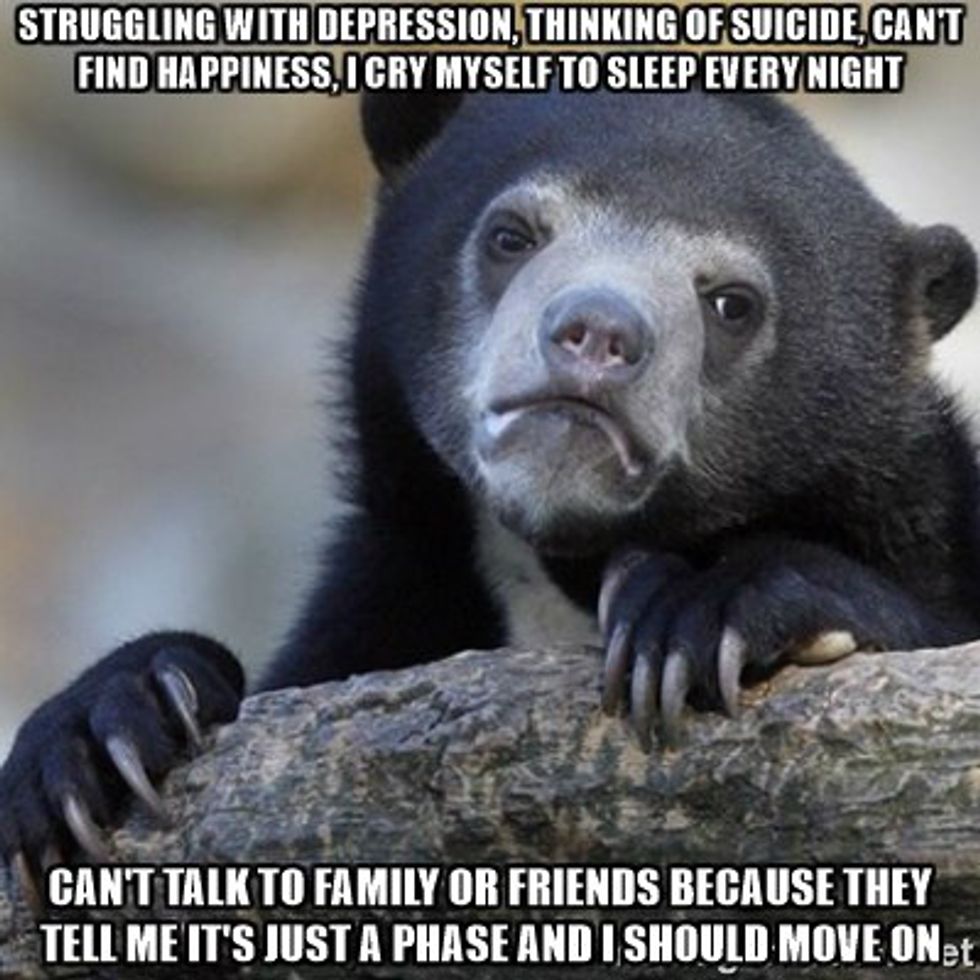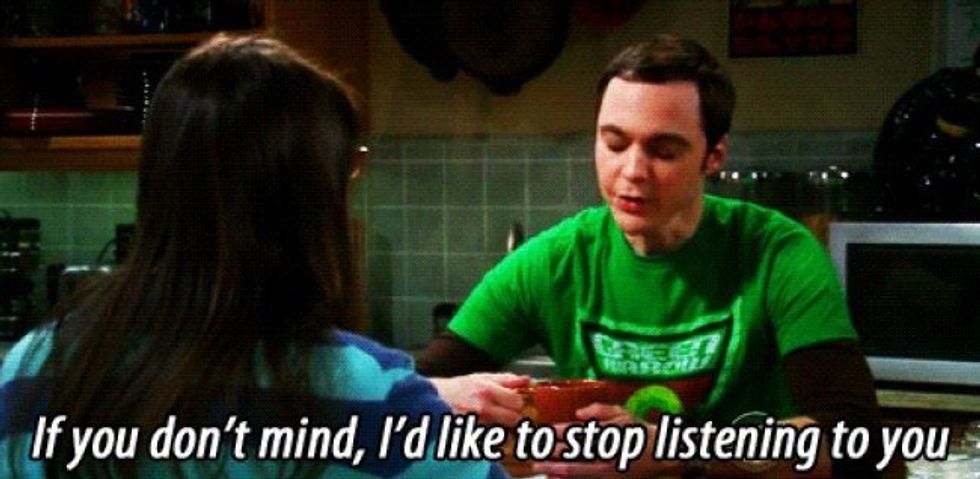According to the Merriam-Webster Dictionary, the definition of depression is “a state of feeling sad, a psychoneurotic or psychotic disorder marked especially by sadness, inactivity, difficulty in thinking and concentration, a significant increase or decrease in appetite and time spent sleeping, feelings of dejection and hopelessness, and sometimes suicidal tendencies.”
Depression is a serious mental illness that sadly is can take many forms, and sometimes it can be undetectable from an observer's eye. However, if a person decides to trust you by telling you about their depression, then it is crucial that you don't invalidate that person. It's also essential for their mental well-being that you don't make them feel like how they're feeling isn't real or worth receiving help for. Therefore, here is a list of four common phrases that you should NEVER say to a person who has depression.
1.“Get over it.”
This is dangerous to say to someone who has depression. This would be like telling someone who has cancer, “It’s just cancer, get over it.” Depression is just as dangerous as any other physical illness, and it can lead a person to do immense physical harm to themselves, such as cutting, not eating, etc. However, although a person with depression might not physically harm themselves, they may cause psychological harm to themselves. In addition, it can be very difficult for those with depression to find the help that they need to recover and heal. When you say, “Get over it,” to someone who has depression, it invalidates the person who has depression. It makes them feel like what they are going through isn’t real or isn’t worth seeking help for, even though it is. Therefore, it is EXTREMELY dangerous to say this to someone who has depression.
Instead of saying this, help the person with depression get the help they need in order to recover, heal and better themselves.
2.“It’s just a phase.”
This is another form of invalidation. Invalidating a person with depression is dangerous because it makes them feel like what they are going through and what they are feeling isn’t real or isn’t worth seeking help for. Making them feel this way can make them not get the help they need and that can lead them to commit acts of physical harm to themselves like getting an eating disorder or committing suicide.
Make sure that you don’t invalidate the person. Make sure that they know that they are loved and that what they are going through and what they are feeling is real and worth getting help for.
3.“There’s always someone who has it worse than you do.”
This is another common form of invalidation that I have seen and heard on a frequent basis. This idea comes from reminding a person in a first-world country that they are much more privileged than a person who, for example, lives in a third-world country. (Have you ever heard the phrase, “First-world problems?”) However, this is dangerous to say to a person who may be experiencing depression because it is another example of invalidating them and making them feel like how they feel isn’t important and isn’t worth getting help for. Just because a person lives in a “first world,” like the United States, does NOT mean that they do not have real problems that they need to seek help for, like depression and other mental health problems.
Make sure that you make the person with depression feel loved because that is essential for them to receive the help they need.
4.“Stop feeling sorry for yourself.”
This is another form of the “first world problem” issue that we addressed in the previous one. Again, it is extremely dangerous for you to say this to a person with depression because this phrase invalidates them and makes them feel like they shouldn’t be feeling the way that they do.
Remember that every person is valid in how they feel and that every person deserves to feel loved and respected.























